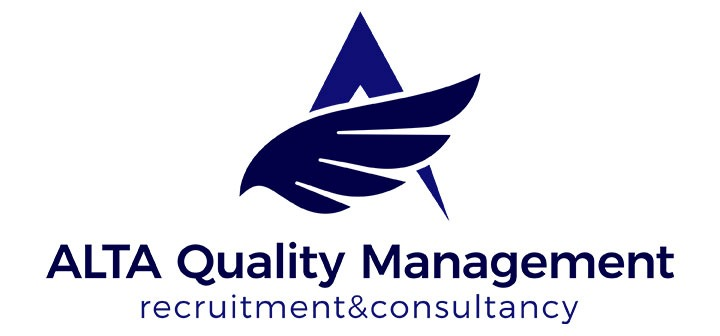
Symptoms Of Add In Women
Add a review FollowOverview
-
Founded Date 24 oktober 2024
-
Posted Jobs 0
-
Viewed 5
Company Description
Guide To ADHD Adult Women: The Intermediate Guide Towards ADHD Adult Women
Understanding ADHD in Adult Women: Challenges, Diagnosis, and Management
Attention Deficit Disorder (ADHD) is often perceived as a youth condition, mostly impacting young boys. Nevertheless, research study suggests that numerous ladies and women are also affected, sometimes in manner ins which are less apparent and hence remain undiagnosed for several years. This article explores ADHD in adult women, clarifying the unique challenges they deal with, the diagnostic process, and available management strategies.
The Unique Presentation of ADHD in Women
ADHD symptoms can manifest differently in women compared to males. While hyperactivity and impulsivity are hallmarks generally recognized in males, numerous females with ADHD display inattentive symptoms. As an outcome, their experiences often go unnoticed or are dismissed as personality traits instead of as symptoms of a condition.
Secret Symptoms of ADHD in Women
The symptoms of ADHD can be classified into two primary types: inattentive and hyperactive-impulsive. Here are some common signs that may be more common in adult women:
Inattentive Symptoms:
- Difficulty organizing tasks and activities.
- Regular lapse of memory in everyday activities.
- Trouble preserving concentrate on jobs.
- Tendency to lose things required for tasks (like keys, phones, etc).
- Avoiding tasks that need continual psychological effort.
Hyperactive-Impulsive Symptoms:
- Chronic uneasyness or feeling on edge.
- Typically disrupting others throughout conversations.
- Problem waiting for one’s turn in scenarios such as group discussions.
- Spontaneous decision-making, affecting individual and professional lives.
The Impact of Undiagnosed ADHD in Women
Lots of women live with ADHD undiagnosed for many years, which can cause a host of challenges, consisting of:
- Mental Health Issues: High rates of stress and anxiety, depression, and low self-esteem.
- Social Difficulties: Trouble keeping friendships due to misunderstandings or spontaneous behavior.
- Career Challenges: Problems with task retention, organization, and conference due dates, causing underemployment or regular job changes.
- Household Struggles: Stress in family dynamics, particularly in parenting functions, when managing kids’s behaviors becomes overwhelming.
Diagnosis of ADHD in Adult Women
Medical diagnosis of ADHD in adult women can be intricate due to overlapping symptoms with other psychological health conditions, in addition to social expectations and gender biases. The following steps are normally associated with the diagnostic procedure:

Steps in Diagnosis
- Comprehensive Evaluation: An extensive assessment consisting of individual history, symptom lists, and potentially standardized tests.
- Medical Interviews: Discussion with psychological health professionals about current symptoms and their influence on every day life.
- Collateral Information: Gathering insights from household members or partners can offer additional context.
- Guideline Out Other Conditions: Identifying similar symptoms from conditions like anxiety or state of mind conditions is important to getting an accurate diagnosis.
| Phase of Diagnosis | Description |
|---|---|
| Comprehensive Evaluation | Initial evaluation and symptom evaluation |
| Medical Interviews | In-depth discussions about experiences and effects |
| Collateral Information | Feedback from relative or close partners |
| Eliminate Other Conditions | Making sure other disorders aren’t misdiagnosed |
Management of ADHD in Adult Women
As soon as diagnosed, adult women can check out various treatment options customized to their needs. Efficient management of ADHD typically consists of a mix of medication, treatment, and lifestyle modifications.
Treatment Options
- Medication: Stimulant medications (such as amphetamines) and non-stimulant options can be prescribed. These assist handle symptoms of negligence and hyperactivity.
- Cognitive Behavioral Therapy (CBT): This type of treatment can help in customizing negative thoughts and habits related to ADHD.
- Coaching and Support Groups: Joining groups can provide psychological assistance and useful pointers for managing ADHD in life.
- Way of life Changes: Implementing time management techniques, exercise, and a healthy diet can substantially improve symptoms.
Coping Strategies for Women with ADHD
Women with ADHD can gain from particular coping methods, which might include:
- Creating Structured Environments: Organizing living and workspaces to reduce interruptions.
- Using Tools and Technology: Employing organizers, apps, or tools for tips can help manage jobs and due dates.
- Setting Realistic Goals: Breaking down larger projects into workable actions to prevent sensation overwhelmed.
- Practicing Mindfulness: Engaging in mindfulness or relaxation strategies to enhance focus and minimize stress and anxiety.
Frequently asked questions About ADHD in Adult Women
Q1: Can ADHD develop in adulthood?A1: ADHD symptoms can emerge in their adult years, particularly if they were undetected throughout youth. However, ADHD is a developmental condition, and symptoms usually begin in childhood, albeit sometimes ignored in females. Q2: Are there any particular triggers for ADHD symptoms
in women?A2: Hormonal variations, such as those experienced throughout menstruation, pregnancy, and menopause, can worsen ADHD symptoms in women. Demanding life occasions may likewise trigger heightened symptoms. Q3: Is ADHD hereditary?A3: Yes, research recommends a genetic component to ADHD. If
a relative has ADHD, the likelihood of another person in the household being affected boosts. Q4: What are the long-term results for women with ADHD?A4: With appropriate medical diagnosis and management, many women with ADHD can lead effective, fulfilling lives, though they might still experience ongoing difficulties. Early intervention and support play a crucial role in improving results. ADHD Adult Women, Www.georgevreeken.top, in adult women is a frequently misconstrued condition that requires higher awareness and understanding. By recognizing the unique symptoms of ADHD and offering suitable support and management strategies, society can help these women reach their complete capacity. If you or somebody you know may be battling with these symptoms, seeking expert assistance can be the primary step toward a more workable and satisfying life.

